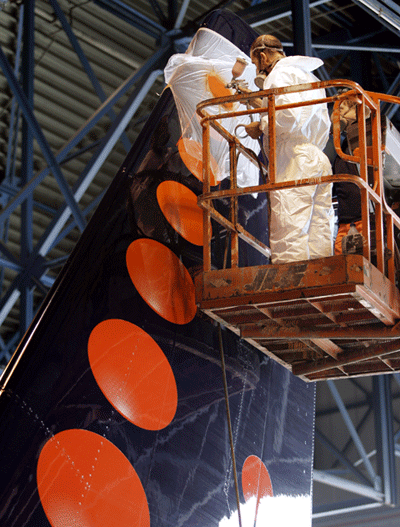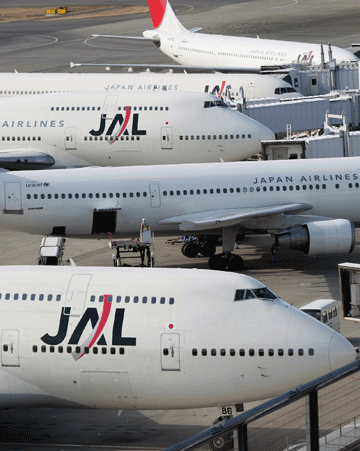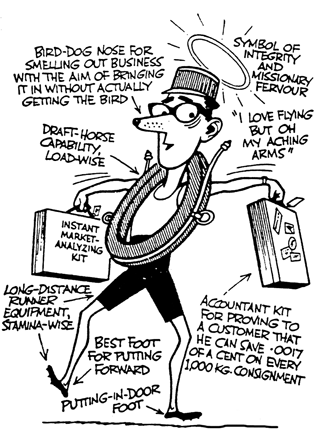 |
 |
|
| |
||
|
Vol. 11 No. 63 Monday July 2, 2012 |
We are sitting in the
hotel at JFK, inside a newly renovated Hilton just off the main
runways, right across from “The Conduit” (that’s
what the locals call the roadway that separates the airport
from a line up of high-rise hostelries).
|
 |
Muhammed Zulkarnain (Zul, pronounced
Zool), leisure Cargo Director in the Americas, drops by between
customer calls and proclaims his assignment is “going
great”—he is making friends and partners for the
Düsseldorf-based cargo resource by offering shippers “a
solid alternative in the air transportation business.”
His assignment, which commenced
last year, involves handling the Northeast USA south to Maryland
(“we are opening up two flights a week for our Condor
summer service from BWI to FRA July 3”), west to Ohio,
and everything up north all across Canada.
“The most important
aspects of what we do is staying close to the customer, watching
every movement, and letting the shipper know that we are on
the case 24/7,” Zul assures.
“In fact, the secret
to success in air cargo today, if there is one, is fairly simple:
“You have to maintain
good relationships (with customers & employees alike), and
also exercise control over your sales and service team as well.
“It’s vital
that your team is consistent with its message to customers,
which also means that sometimes you have to be willing to admit
that you don’t know everything and must adapt; then you
will have it.”
leisure Cargo in Düsseldorf,
Germany, has a name that sounds like a contradiction in air
cargo terms.
Ralf Rainer Ausländer,
who founded the company (a solid part of a growing Air Berlin)
in January 1, 2000, remains uncomplicated and comfortably situate
at the helm of an important resource for an impressive and growing
list of carriers whose business is, in the first instance, LCC,
and almost everywhere else, touristic-based.
Keeping it simple has been
job one since this long-time cargo executive decided to focus
exclusively on a market segment completely overlooked by everybody
else.
In a nutshell, the leisure
Cargo GmbH original idea is to provide the 18 carriers it represents
with full logistical know-how, from sales and handling contracts
to road feeder services, on a worldwide or regional basis.
But where the rubber meets
the road, leisure (quite a compact, lean operation) has placed
some dynamic first-rate logistics market specialists.
That’s where people
such as Eric Fraenkel, who handles Latin America and was profiled
here recently, and Zul come in.
Zul is from Malaysia and
is part of a growing mobile population of internationalists
that seem to always be on a flight going somewhere.
He notes that he spends
about a third of the month in the USA looking after accounts
and the growing leisure Cargo/Air Berlin and Air Europa footprint
here.
“We have just put
a customer service specialist named Dan Genjo here in New York.
“Our cargo into JFK
for both Air Berlin and leisure Cargo partner carrier Air Europa
is handled by China Airlines.
“Dan will look after
our business day to day, and of course the new Condor services
into BWI as well.
“Air Berlin A330-200s
offer a daily flight with cargo lift and super fast connections
from JFK to both DUS and BER.
“Air Europa flies
into New York seven times a week and their A330-200s can carry
18 tons of cargo.”
For Zul, the USA post is
a return of sorts; he lived in America during his college days,
receiving his education at University of Buffalo before returning
home to enter the family business. His father, Zainal Abidin
Bin Abdul Kapur, is a well-known and much respected transportation
specialist from Malaysia who had built ABDA Aviation Sdn Bhd
into a major GSSA operation, serving Aeroflot Malaysian Air
and others.
ABDA has enjoyed a relationship
with leisure dating back to when the company began, so the move
for Zul into the business naturally evolved with his stationing
in America.
“Transportation is
in my blood and as my education was gained, I suppose I learned
as much from the teachings of my father as from anywhere else.
“Looking at business,
2011 was quite a good year, but 2012 is turning out to be a
very different picture.
“Business was all
right from January through April 2012, but was particularly
lean in May and is recovering during this June period.
“What that means to
us goes along with what Ralf has often said.
“We don’t have
a crystal ball to predict what will drive world markets up or
down, but we can control staying close to our customers, and
offering our product on a straightforward basis at the best
rate while keeping the process simple.
“Because we are a
tight-knit group at leisure, we can react to market conditions
very quickly, and with flexibility and control.
“We cut to the chase;
you have cargo, we have lift, let’s work rates—forwarders
appreciate that from us.
“For my experience,
it all comes down to price and relationships.”
In addition to the USA and
Canada, Zul also carries responsibilities as Group Director
for all ABDA sales activities elsewhere in the world.
“I cover several countries
in the Middle East, India, and Pakistan, excluding Africa.
“As a result of the
solid relationship between leisure and ABDA, we teamed up to
combine our services via Gateway Istanbul, which launched on
June 29 at IST, with both Mr. Ralf and Mr. Zainul in attendance
to kick things off.”
Looking ahead, Team leisure
Cargo is ramping up efforts to both attend and display at the
TIACA Forum, set to be held this October in Atlanta, Georgia.
“We are excited at
the possibility of meeting the supply chain logistics people
that will attend that event and have the benefit of getting
to know us as well.
“leisure is driven
by a love of the business; we are young, agile and ready to
grow with others,” Zul said.
Geoffrey/Flossie
Here are the
highlights of the latest nuptials:
|
 |
|
Get
On Board
|
|
|
That widely reported
penalty imposed last week by the High Court in Auckland against
Japan Airlines (JAL) (to pay a $2.3m penalty for price-fixing
breaches of the Commerce Act) continues a case brought against
18 airlines in late 2008 by The New Zealand Commerce Commission.
|
“According to IATA’s
May 2012 figures, e-freight has gone live in 42 countries, at
429 airports, and with 46 airlines, as well as with 2,057 freight
forwarders participating.
|
A Cargo Salesman |
If
You Missed Any Of The Previous 3 Issues Of FlyingTypers |
|||||
|
|||||
FT062112 |
FT062712 |
||||
|---|---|---|---|---|---|

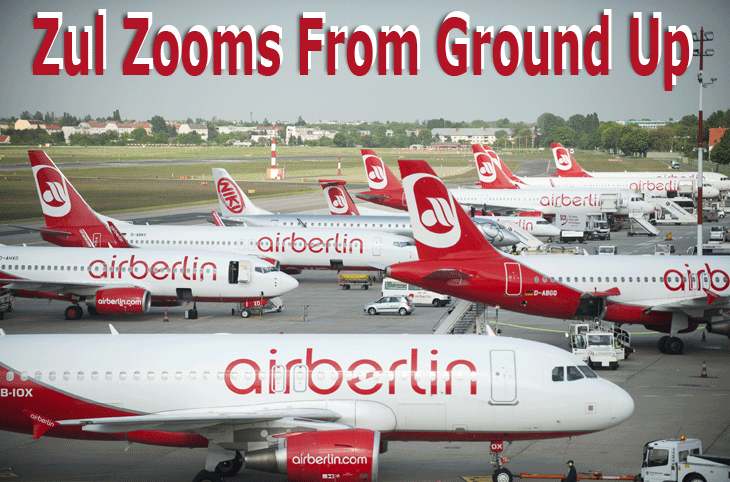

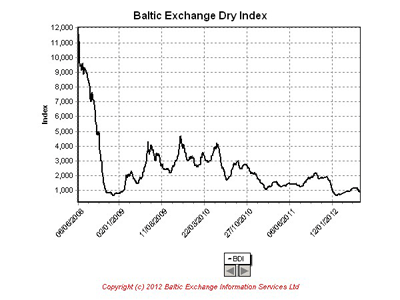 The
Baltic Exchange Dry Index (BDI), which tracks freight rates
across the entire bulk carrier sector, suffered an unprecedented
plunge from a peak of 11,793 in May 2008 in the pre-Global Financial
Crisis days to just 733 in late November of the same year, as
the full extent of the banking sector’s liabilities became
apparent and markets around the world fell off a rather high
cliff.
The
Baltic Exchange Dry Index (BDI), which tracks freight rates
across the entire bulk carrier sector, suffered an unprecedented
plunge from a peak of 11,793 in May 2008 in the pre-Global Financial
Crisis days to just 733 in late November of the same year, as
the full extent of the banking sector’s liabilities became
apparent and markets around the world fell off a rather high
cliff.